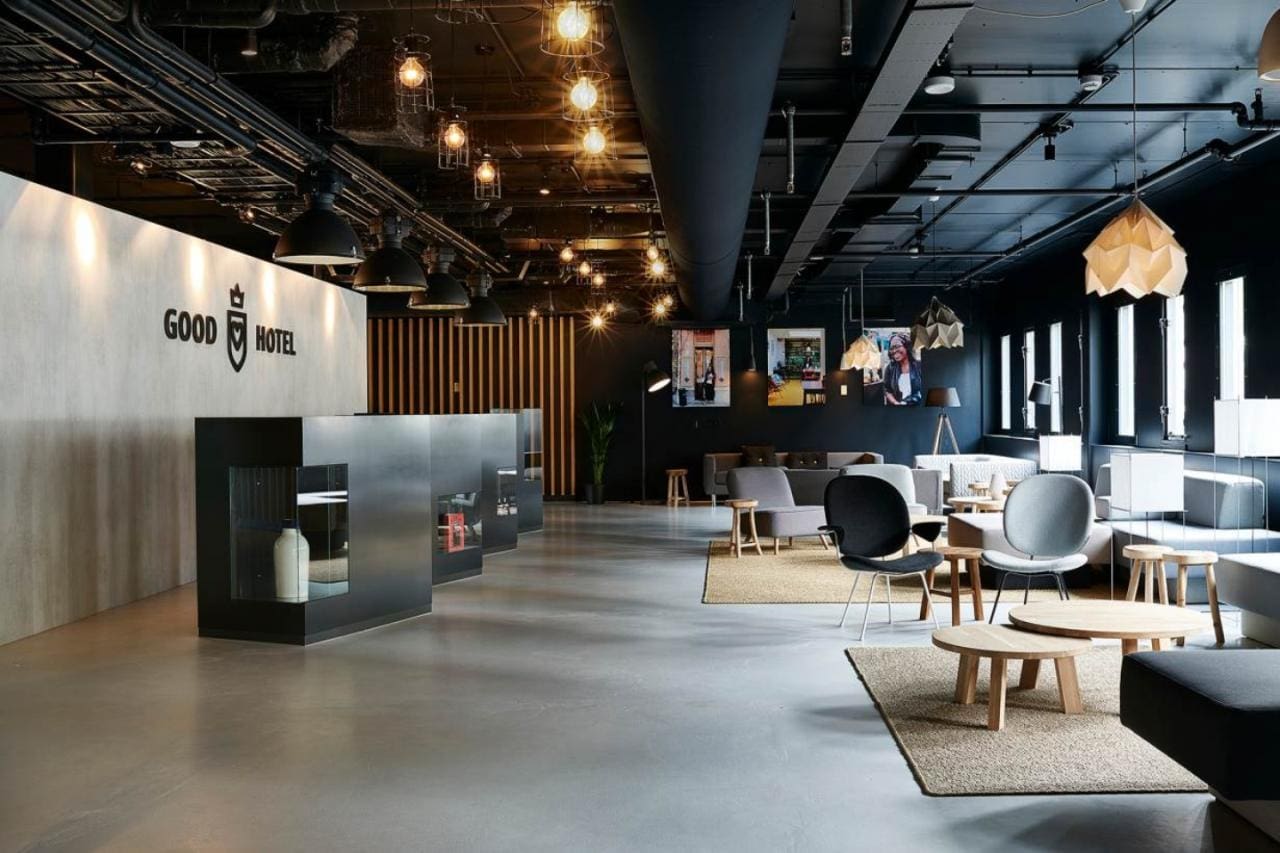London’s Good Hotel which floats on the River Thames invests all its profits in helping locals in one of the city’s poorest areas.

“Hotels are often internationally owned, and often times filled with people who are quite far removed from the local setting,” said the hotel’s founder, Marten Dresen.
“They mostly serve people who are not local to them.”
Ethical tourism is increasingly popular among socially conscious travellers who want to minimise their environmental footprint and boost local economies, rather than global hotel chains or cruise companies that repatriate their profits.
Growing numbers of people are on the move, with 1.4 billion international tourists in 2018 according to United Nations data – equal to the population of China—up 53 per cent in a decade, as travel becomes cheaper and easier.
Yet locals often bear the brunt of overcrowding in popular sites, pollution caused by cruise ships or soaring rents driven up by tourists paying more for accommodation via sites like Airbnb.
The tourism industry, when done right, has the phenomenal ability to raise people up … It has made tremendous strides in getting more responsible, but there is a long way for us to go as an industry.
Jamie Sweeting, president, Planeterra
London’s container-like Good Hotel started out as a detention centre for illegal immigrants in the Netherlands before becoming a pop-up hotel in Amsterdam in 2015 and then towed up the River Thames by tug boats in 2016 to its new home.
Situated in East London’s Royal Docks, where ships unloaded their cargo a century ago, the 148-room Good Hotel invests all of its profits in training and education to create jobs and opportunities for locals in one of the city’s poorest areas.
“The more we grow as a business, the more we can reinvest,” said Dresen, who runs a similar Good Hotel in Antigua, a city in the highlands of Guatemala, with a scheme to train and hire single mothers and provide apprenticeships for local schools.
More than 80 London locals who struggled to find work have completed the Good Hotel’s four-month hospitality training scheme since 2016. Almost all are now in full-time jobs, including nine who work at the hotel.
Good path
Shaqueen Wilson set her sights on working at the Good Hotel after her mother completed the training course and got a job in the kitchen.
Two years on, Wilson is one of the senior bar staff, and managers have made sure her shifts do not clash with her mother’s so they can share the care of Wilson’s young daughter.
“The job means so much to me. I feel very comfortable here,” Wilson told the Thomson Reuters Foundation.
“We are definitely on a good path and helping others.”
The funding for the training schemes is included in the Good Hotel’s operating costs, and the business donates any profits after that to its charity partner Ninos de Guatemala.
It has given more than $100,000 to the charity, which runs three schools for poor Guatemalan children, and was founded by Dresen during a 2006 trip but is no longer run by him.
London’s Good Hotel sources food and drink locally where possible, offers Newham residents a 20 per cent discount in its bar and restaurant, and occasionally hosts open bar events for them.
But many guests do not know about its social business model until they check in, choosing to stay at the hotel because of its proximity to London City Airport and the ExCeL centre, host to events such as the 2009 G20 summit and the London Boat Show.
Of the five guests the Thomson Reuters Foundation spoke to, just one knew it was a social enterprise before he booked.
As a frequent traveller for work, Brad Garrison, an IT executive from Staffordshire in central England, said he seeks out businesses like the Good Hotel when he travels.
“Places like this feel less price gouging—it is cheap for London and the quality is high,” he said.
Unusual experiences
It is not just locals that want a different kind of tourism—consumers are starting to demand it.
“Travellers are becoming increasingly aware of the fact that they are contributing to environmental issues by travelling around the world,” said Marloes de Vries, a travel analyst from British research firm, Mintel.
“Travellers are increasingly seeking novel activities that enable them to get ‘under the skin’ of the destination, or unusual experiences outside of the parameters of traditional mass tourism.”
Planeterra Foundation is a Canadian charity that seeks to tap into this growing demand for purpose-driven travel.
Founded by adventure travel company G-Adventures in 2003, Planeterra describes itself as an incubator, helping to fund and establish 75 social enterprises, including cultural experiences and souvenir makers, in 42 global tourist destinations.
In Peru’s Sacred Valley of the Incas, for example, it helped establish a social enterprise restaurant, Parwa, for groups to have a traditional meal as part of a tour of the famed ancient ruins of Machu Picchu.
Tourism to Machu Picchu over the past decade has surged to more than 1 million visitors in 2018, with a ticketing system in place to regulate the stream of tourists.
Aside from local souvenir sellers, porters and cooks who accompany tour groups, “very little money goes into the community from tourism”, said Jamie Sweeting, president of Planeterra.
The off the beaten path restaurant – which employs 65 people, sources local products, sells souvenirs from local artisans and reinvests its profits in community projects – hosts about 16,000 tourists a year.
“We are trying to … take advantage of tourism volume to some of these places, but spread the wealth to people that aren’t necessarily benefiting from that tourism,” Sweeting said.
“The tourism industry, when done right, has the phenomenal ability to raise people up … It has made tremendous strides in getting more responsible, but there is a long way for us to go as an industry.”








